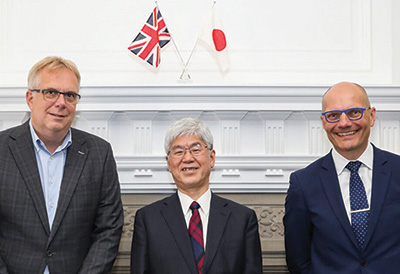Jacobs to support development of new nuclear power plant for heavy industry
30/08/2024
Jacobs has been selected by the UK’s National Nuclear Laboratory (NNL) to help develop a new type of nuclear power plant. NNL is working with the Japan Atomic Energy Agency on a new reactor design for the UK market, with a focus on the production of high-temperature heat for industrial applications.
As NNL’s multi-discipline design consultant, Jacobs will review the initial designs and delivery plans for the high-temperature gas reactor.
“We will deploy our deep experience and knowledge of nuclear reactor technology to help deliver a power plant with the potential to contribute to one of the most challenging aspects of energy transition: the decarbonisation of heavy industry such as steel and cement production,” said Andy White, Vice President of Jacobs.
Jacobs will help develop cost and schedule estimates as part of a broader investment case submission to HM Treasury, review market demand and end-use cases for high-temperature gas-cooled reactor (HTGR) technology, carry out a detailed engineering design review to ensure regulatory compliance and support engagement with UK regulators.
 | ||
| Jacobs has been selected by the UK’s National Nuclear Laboratory (NNL) to help develop a new type of nuclear power plant. |
Research and development work on the advanced modular reactor concept is funded by the UK Department for Energy Security and Net Zero (DESNZ) as part of a competition to enable the development and demonstration of HTGR technology.
Subject to further support from DESNZ, the next phase of the project comprises detailed design, manufacturing, construction and commissioning of a HTGR demonstrator.
“This is a groundbreaking project,” said Emma Vernon, NNL Vice President for Government and New Build. “We are looking forward to working together on the development of the UKJ-HTR design, through this phase of the DESNZ competition, which will help UK industry to adapt to a changing world and take a step closer to achieving our net-zero goals.”